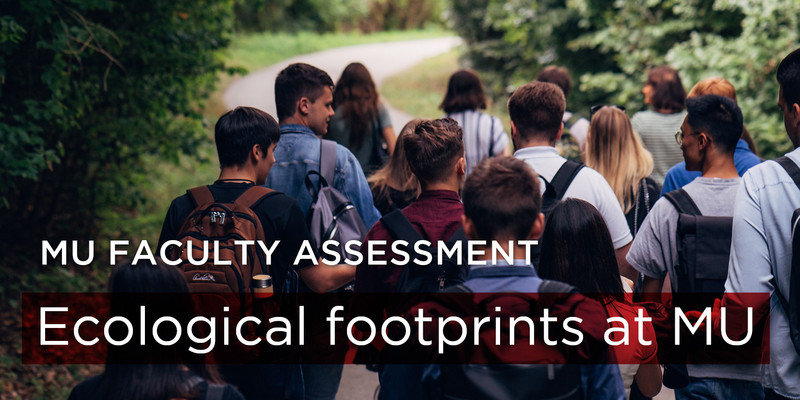Ecological footprint of MU students above average
November 19, 2020
Assessment by lecturer David Leonard, PhD
Sustainability is a core value integrated into the operations and teaching at Modul University. To assess how well Modul University is managing to transfer sustainability-related knowledge to our students, all students are required to complete a questionnaire at their study start, and again at graduation. This data has helped the University to make appropriate changes, including the creation of a core course in sustainability which is compulsory for all undergraduate students.
Our community has an impact on others and the environment, and we can all make changes which would increase our positive impacts and mitigate our negative ones: these are studied using Ecological Footprint Analysis. By inputting various details of our daily lives, an ecological footprint calculator determines how much of the planet’s resources are required to support our lifestyle: this is expressed in terms of Global Hectares (gha). For context, if the Earth’s productive capacity were shared equally among its entire population, we would each have access to around 1.6gha worth of resources, yet we are currently using an average of 2.8gha per person. This predicament is labelled “ecological overshoot”, whereby we use more resources than the planet can replenish. These same numbers can be translated into the date of each year when we use up all of the resources regenerated in that year. This is known as the Earth Overshoot Day – which was on August 13th this year.
Overshoot Day was later this year than it has been in over a decade, which can be considered a silver lining to the Covid-19 pandemic.
In November 2020, David Leonard and Gabriel Trettel-Silva of MUs Department of Sustainability, Governance, and Methods collected data on 175 undergraduate students. Many reported that their ecological footprint had reduced as a result of Covid-19 restrictions, which aligns with global figures, but the average student value of 7.2gha (std. dev. 2.6gha) remains significantly above the global average of 2.8gha and even above the Austrian average of 6.2gha (Global Footprint Network).
Results show which aspects of students’ lifestyles contribute most significantly to their environmental impact as well as what they see as the easiest things to change. The good news is that the greatest contributors, food and mobility, are also perceived as the greatest opportunities for change. Shifting away from the consumption of animal-based foodstuffs makes a massive difference to one’s ecological footprint, mainly because it is highly inefficient to convert plant-based nutrition into animal-based nutrition. The Feed Conversion Ratio varies according to animal and growing conditions, yet on average reveals a loss of 90% of the food weight, calories, and protein through this process. Mobility impacts result primarily from the emissions associated with the burning of fossil fuels, which can often be reduced by using public transport rather than private mobility options, and by reducing air travel as much as possible: the latter is a particular challenge for Modul University’s highly international student body, yet many see opportunities for reduction by travelling home less often and for longer each time.
Student answers to: What contributes most to your ecological footprint?
- Mobility (70+%)
- Food (70+%)
- Goods (25+%)
- Shelter (10+%)
- Service (1%)
Student answers to: What would be easiest to reduce?
- Food (80+%)
- Mobility (60+%)
- Goods (25+%)
- Shelter (20+%)
- Services (10+%)
While the lives that MU students and graduates lead are entirely in their own hands, Modul University Vienna remains committed to providing students with the knowledge necessary for making responsible decisions.
David Leonard and Gabriel Trettel Silva teach the course “Sustainability Literacy for Business”, which introduces all bachelor students to the essential bio-physical systems which support life on Earth. The course explores the ways in which these ecosystem services contribute to human wellbeing and examines the interaction between economic and ecological systems. David Leonard is also MU’s Sustainability Manager and in charge of reporting on this matter.
If you are interested in his assessments or wish to gain insight on similar topics, please contact David.leonardsymbolmodul.acpunktat.
See also:
Master in Sustainability Management
MBA Specialization in Sustainable Management and Governance
Sustainability at Modul University





